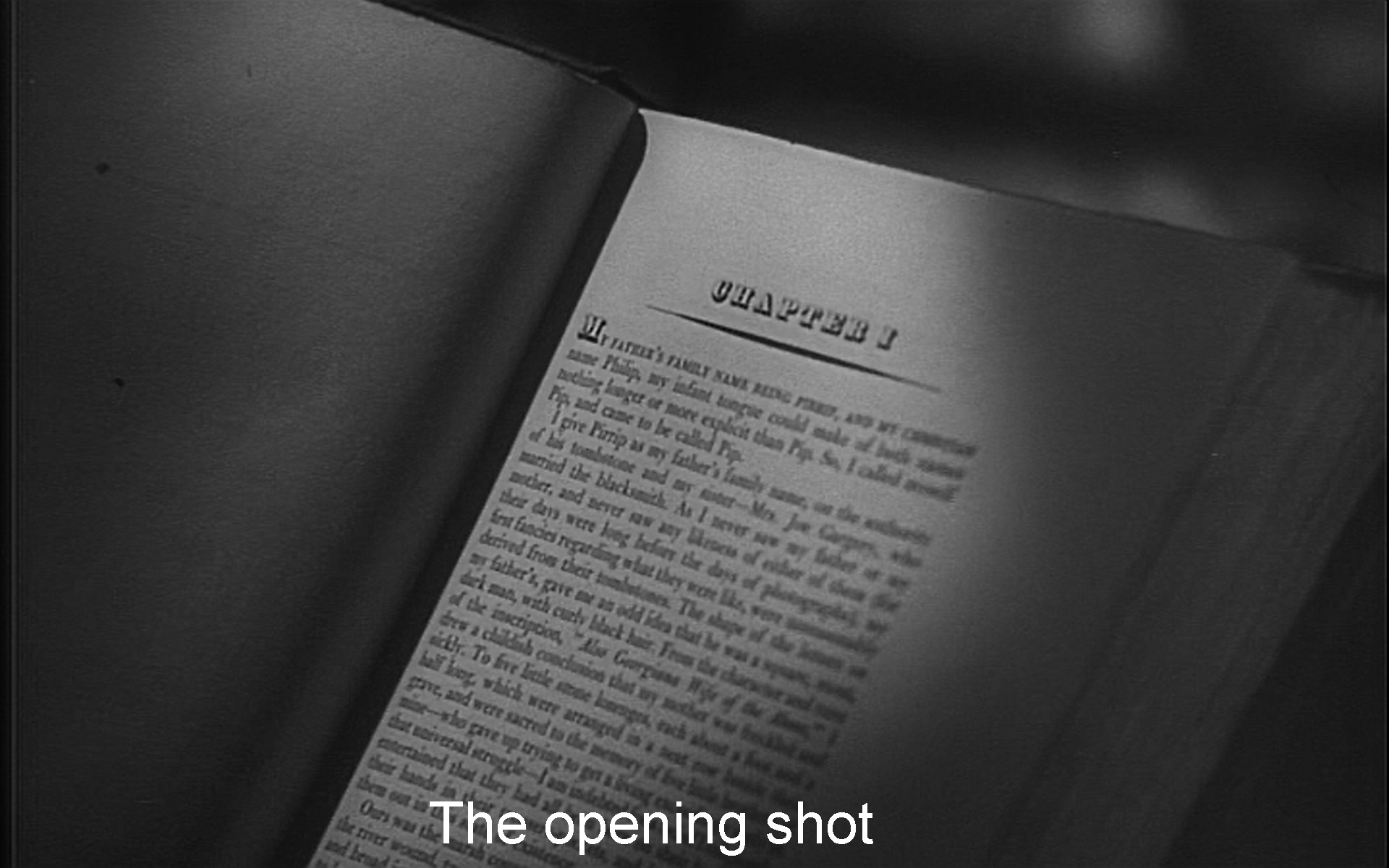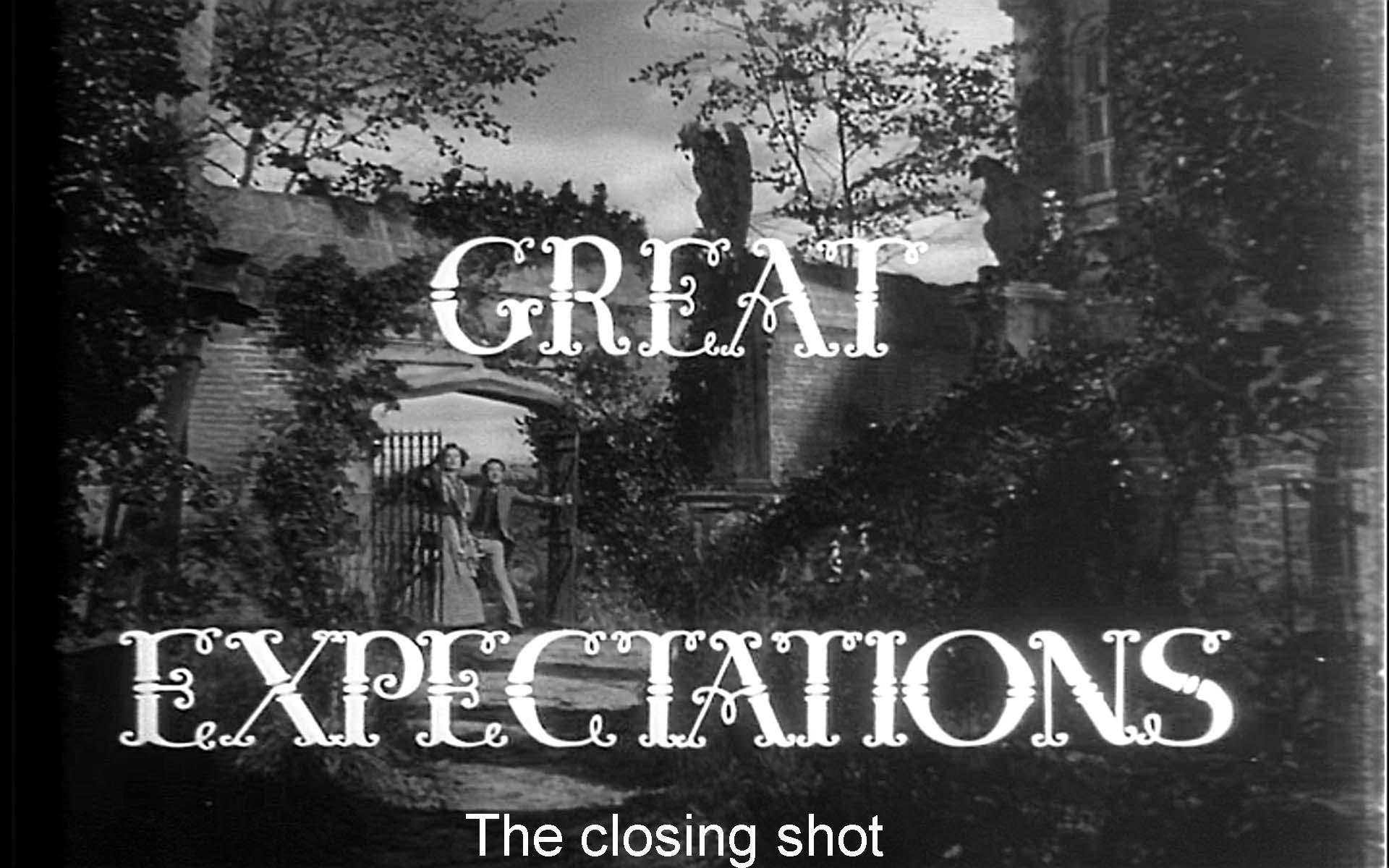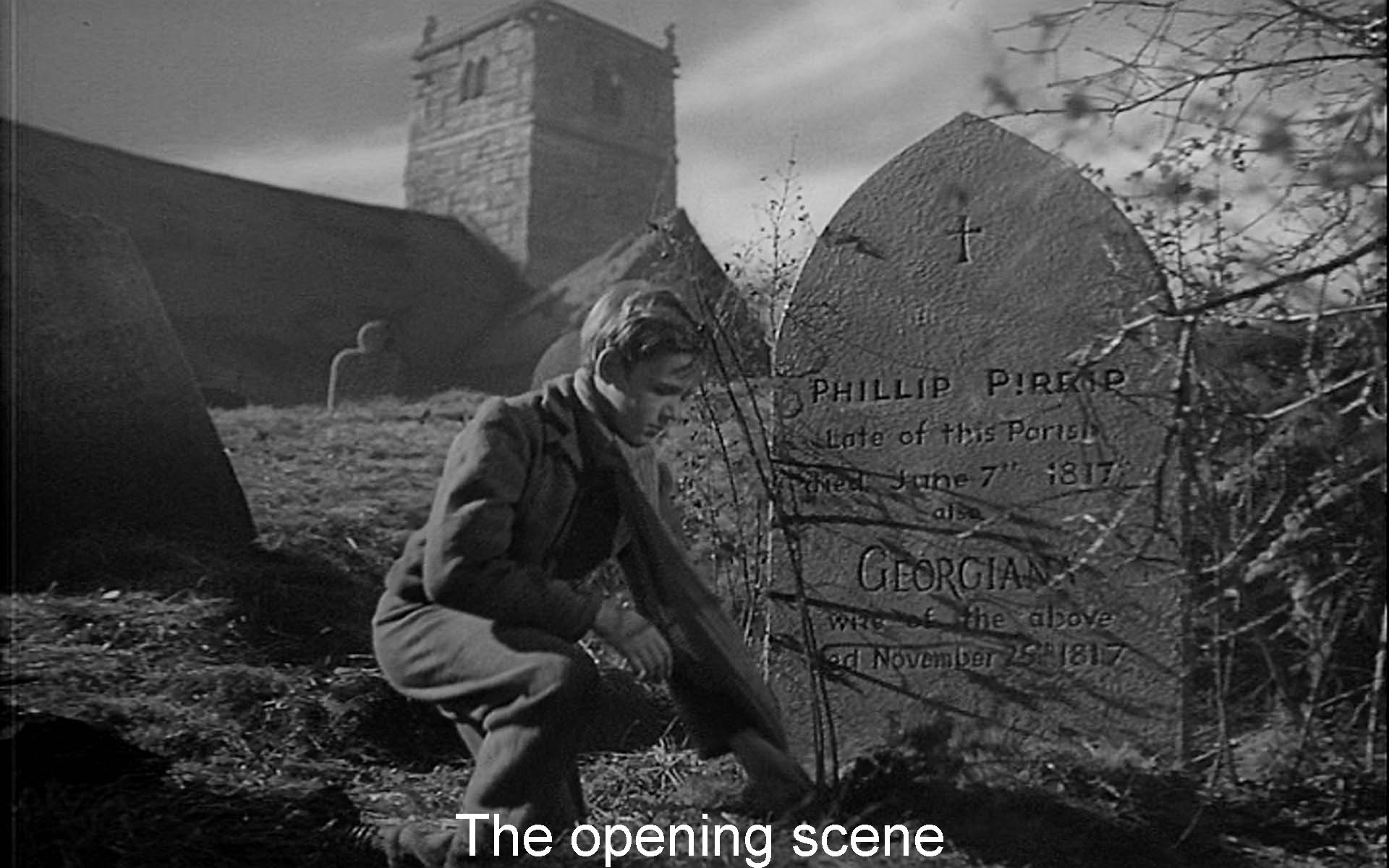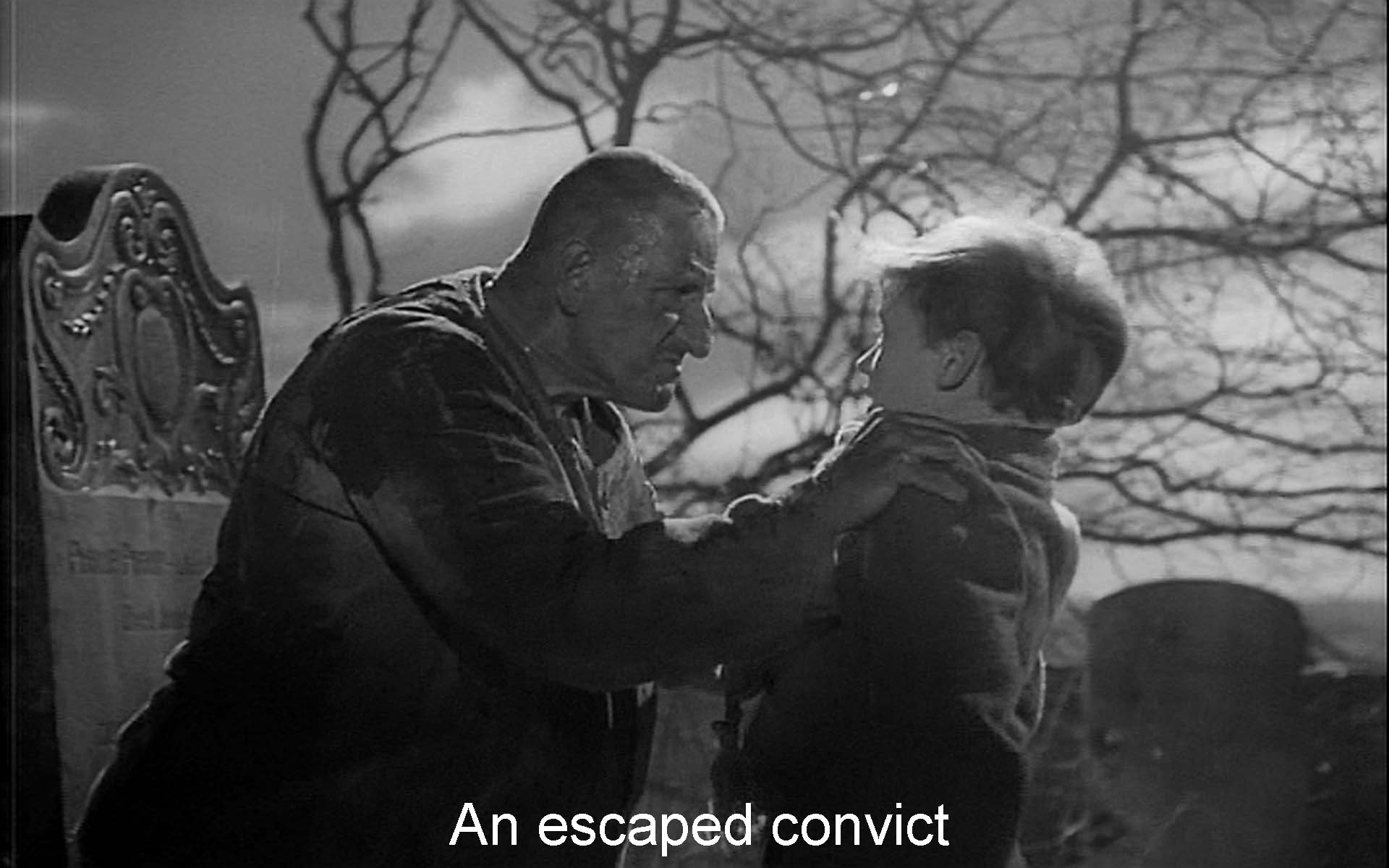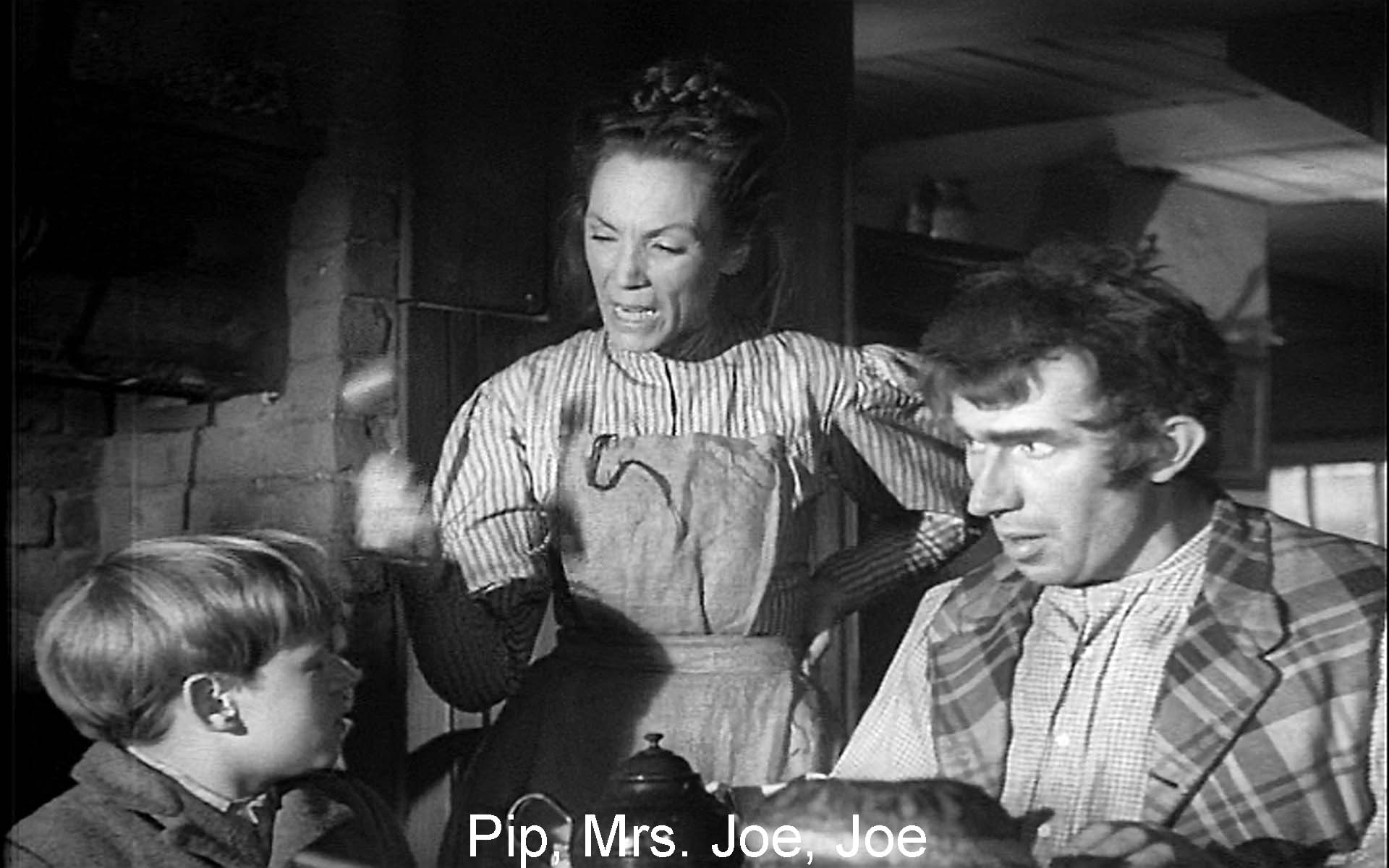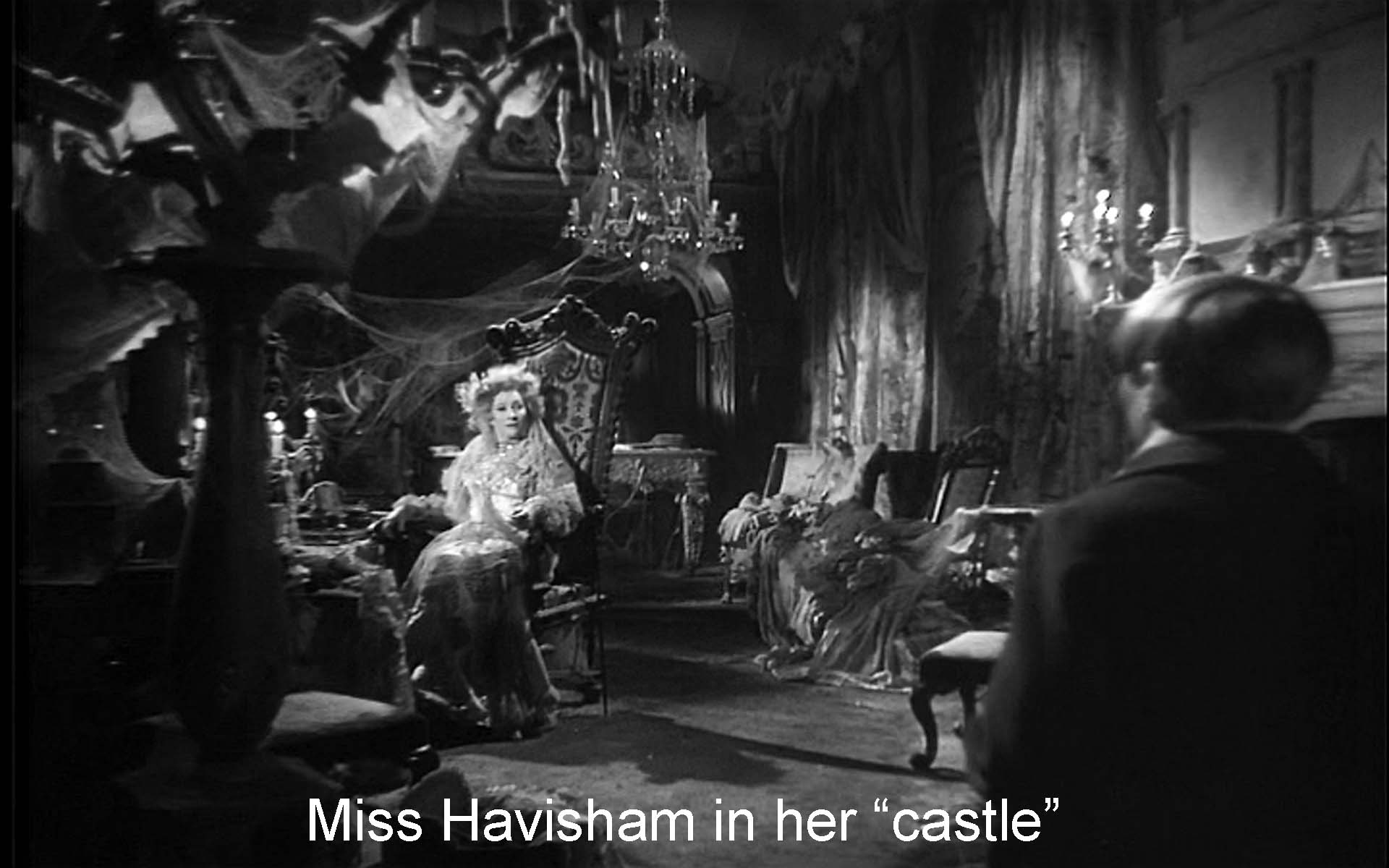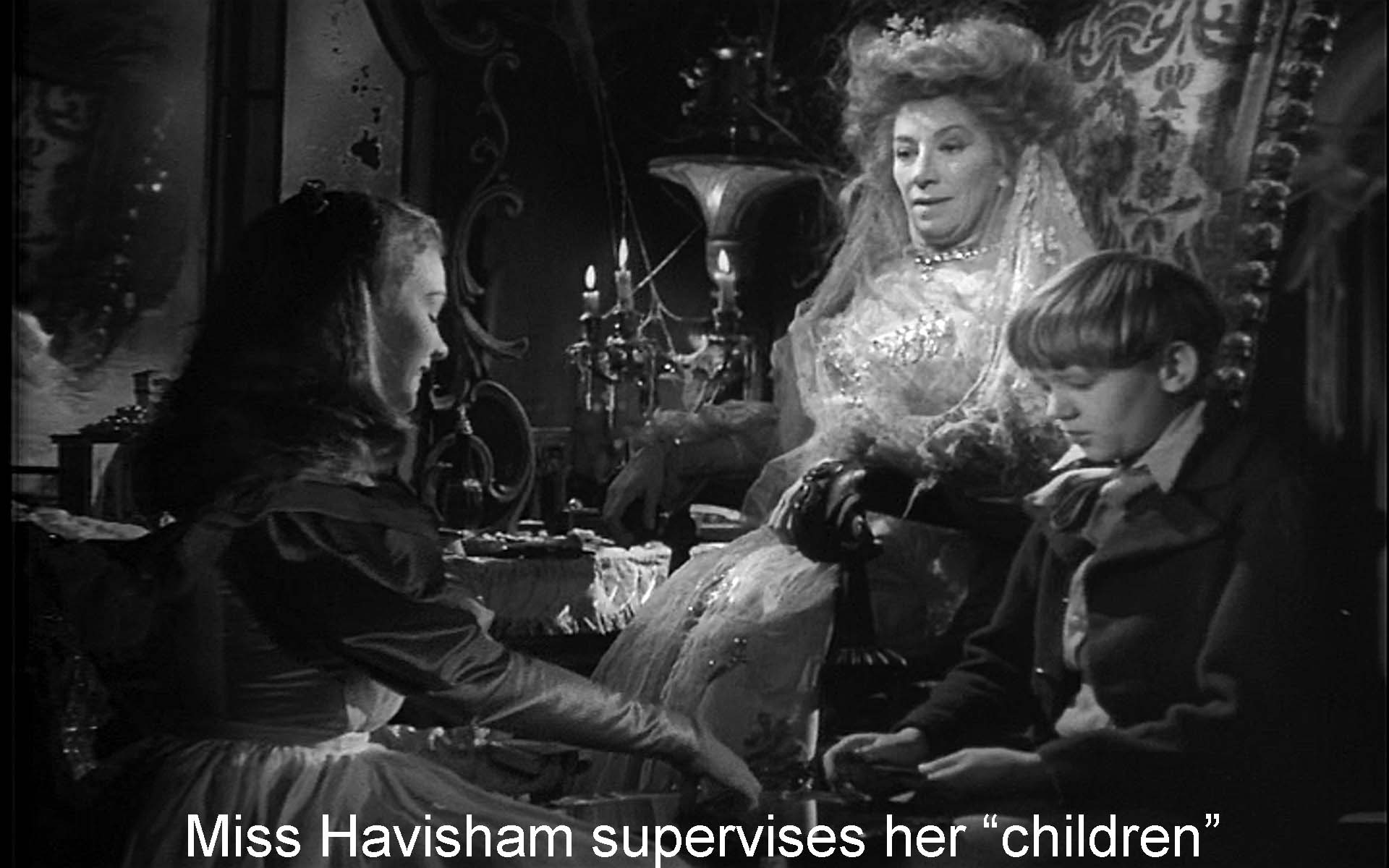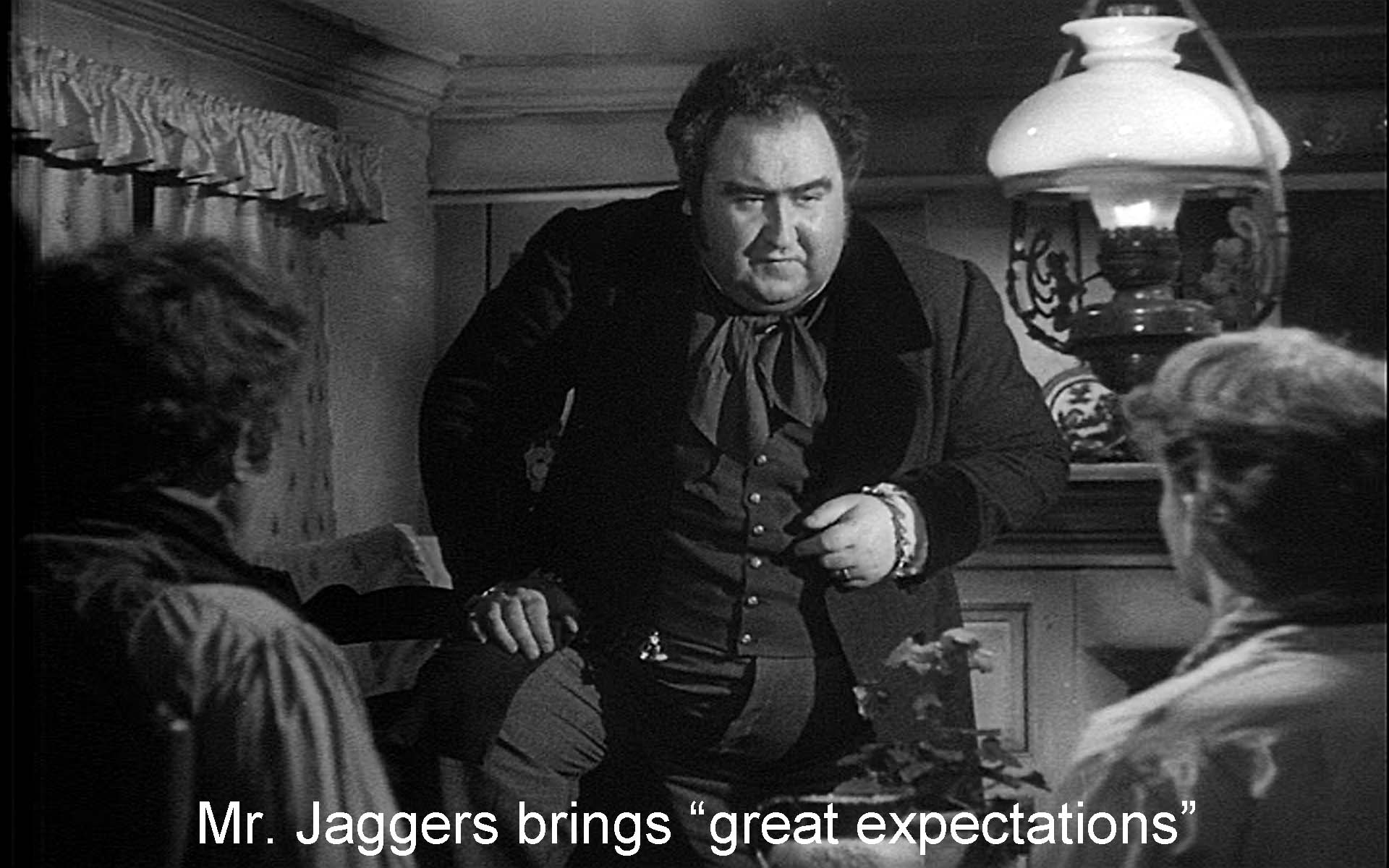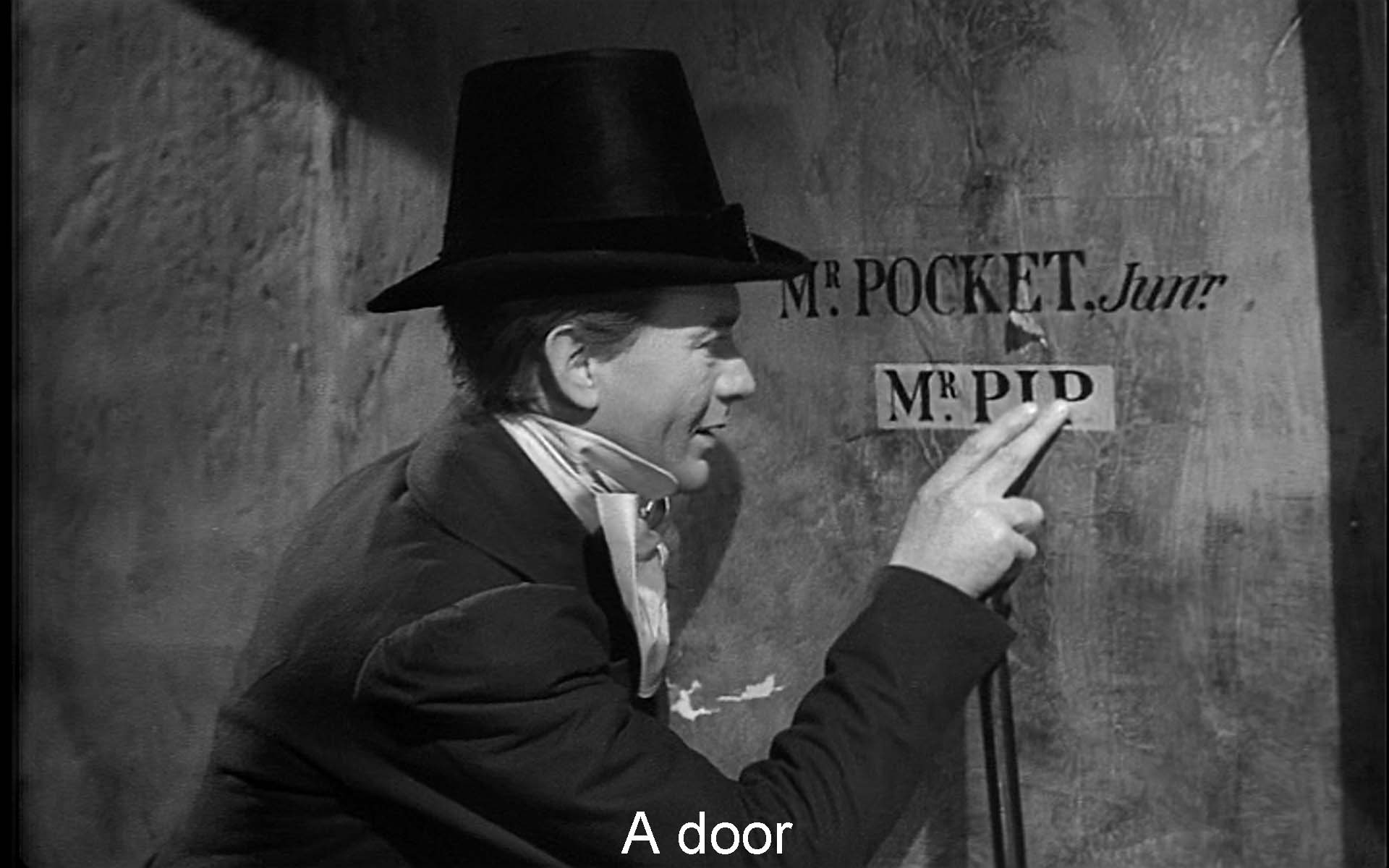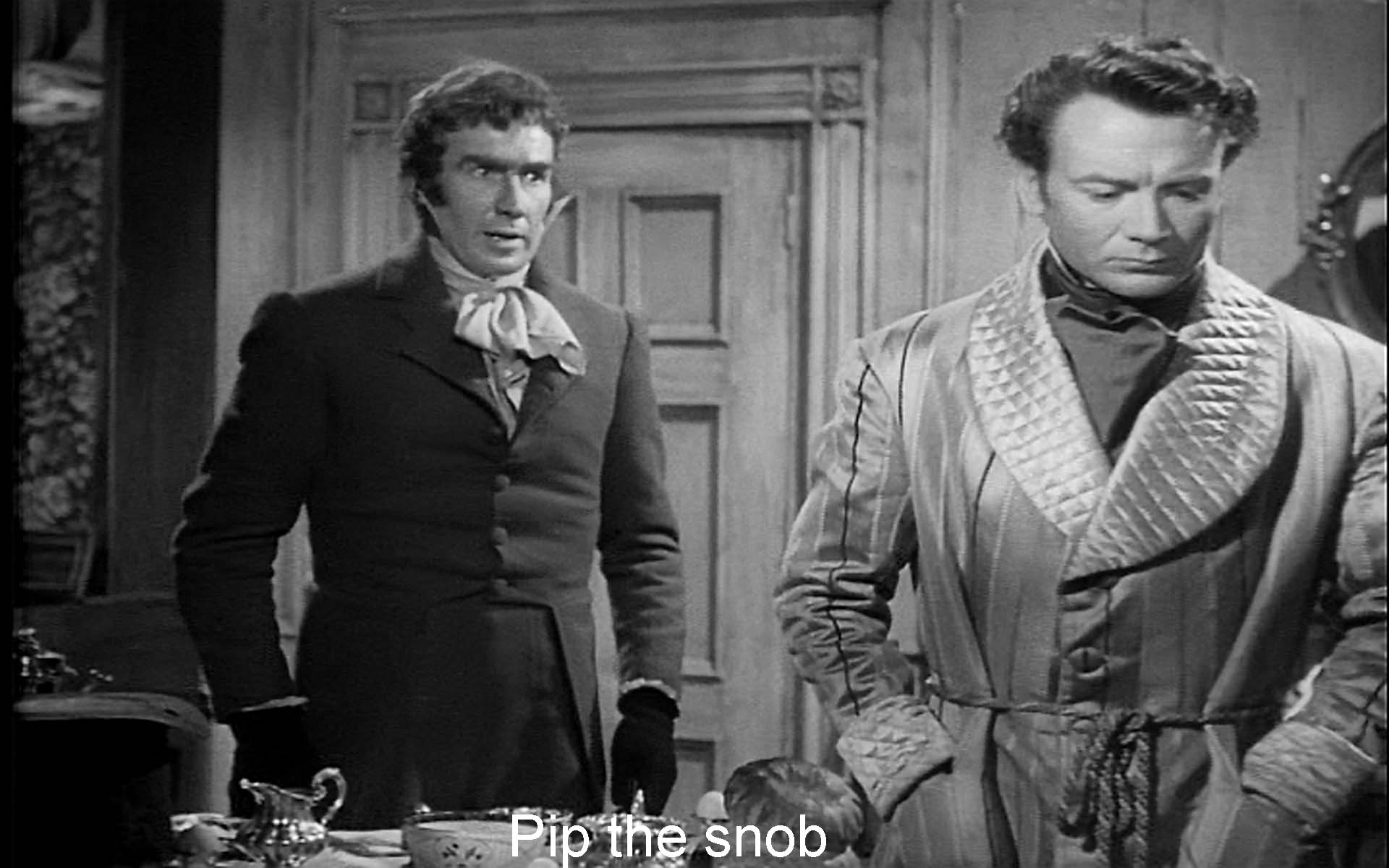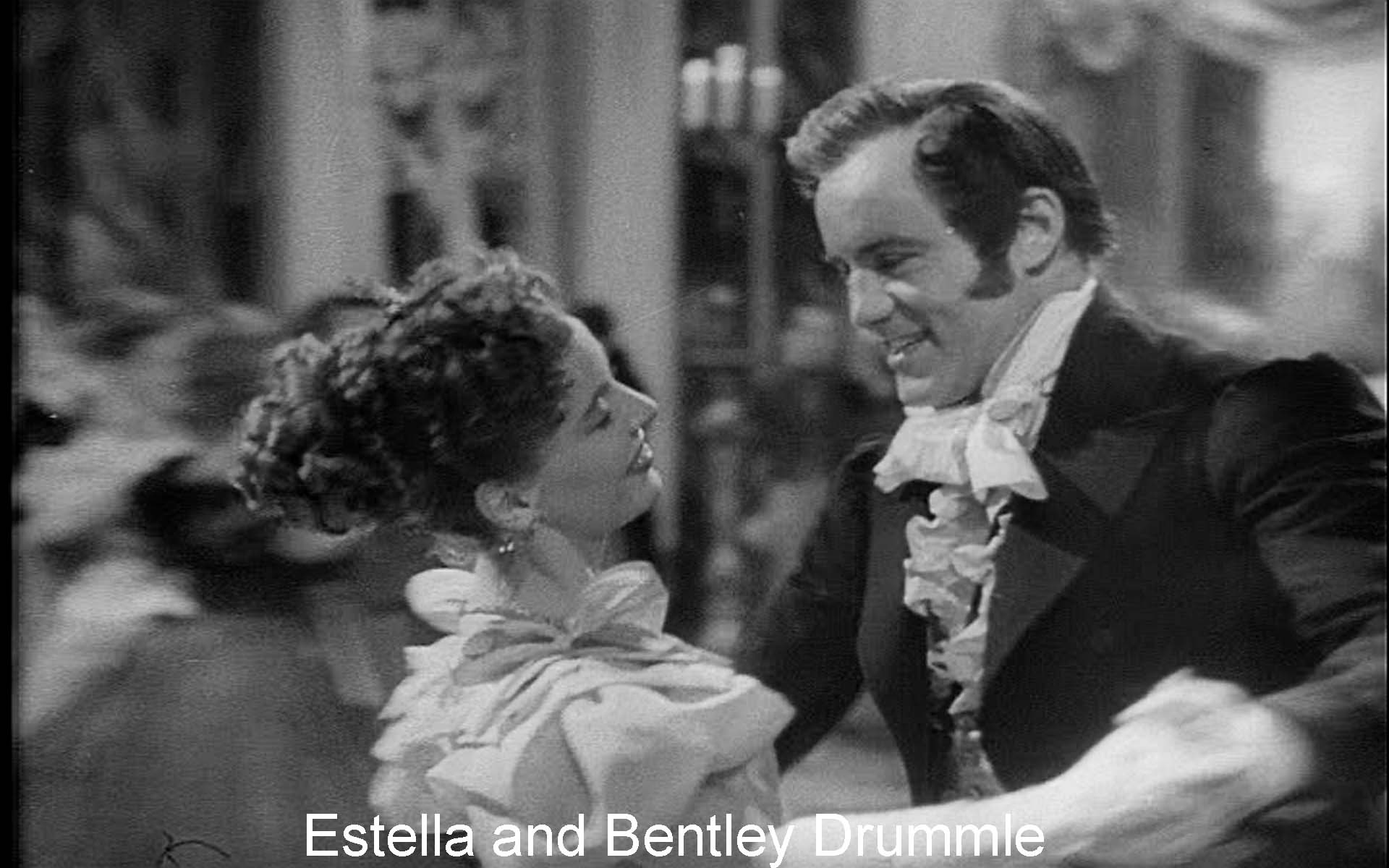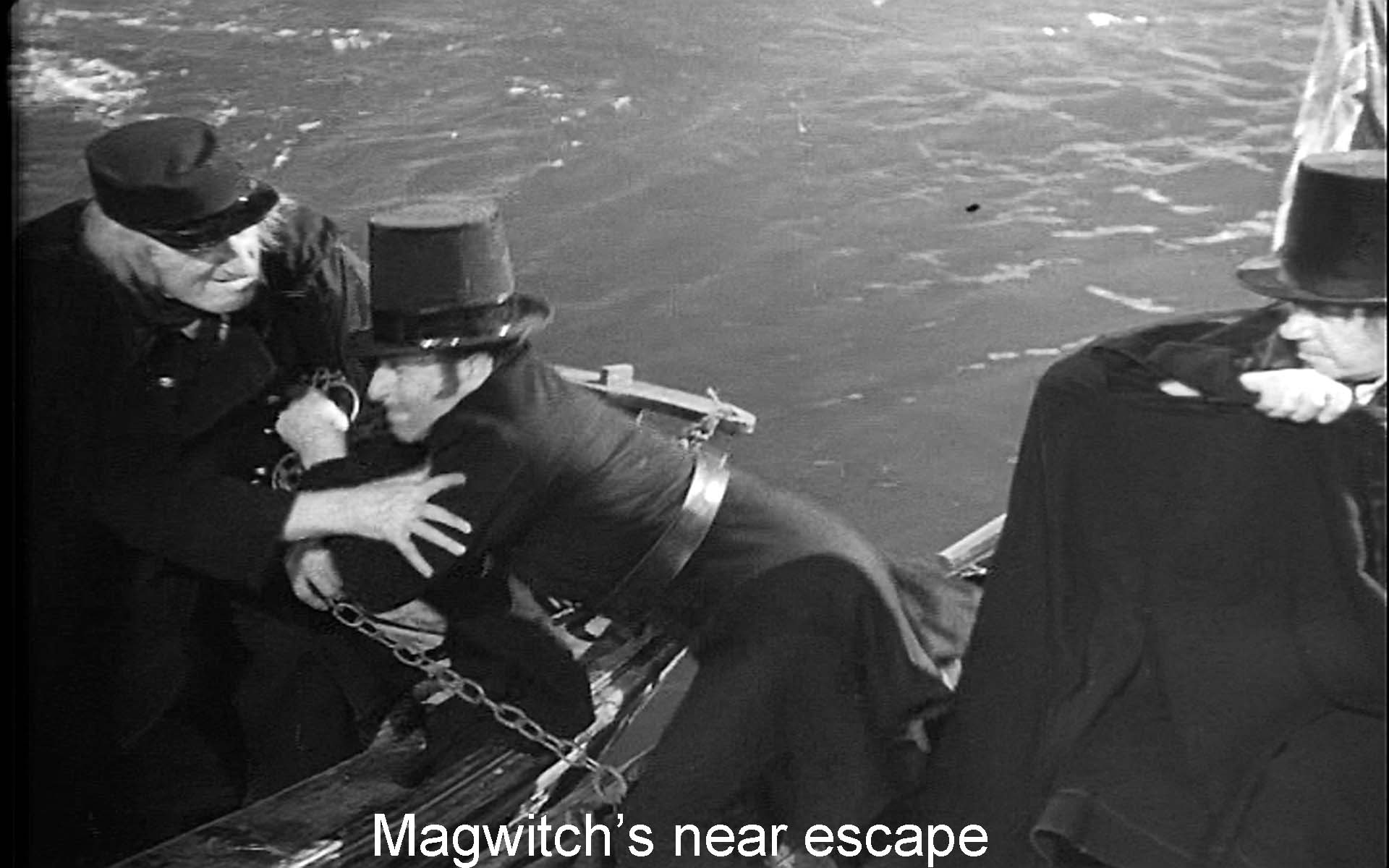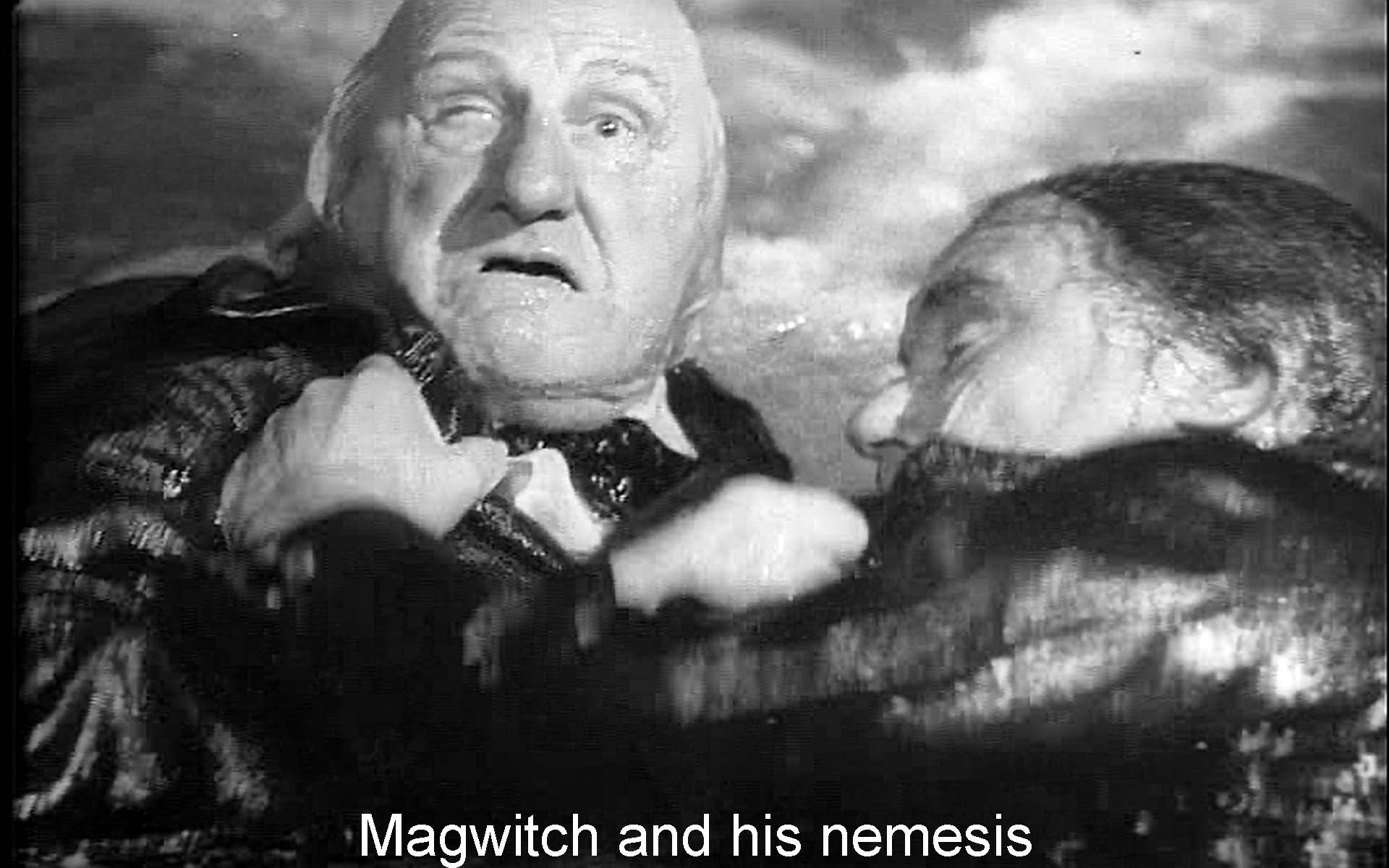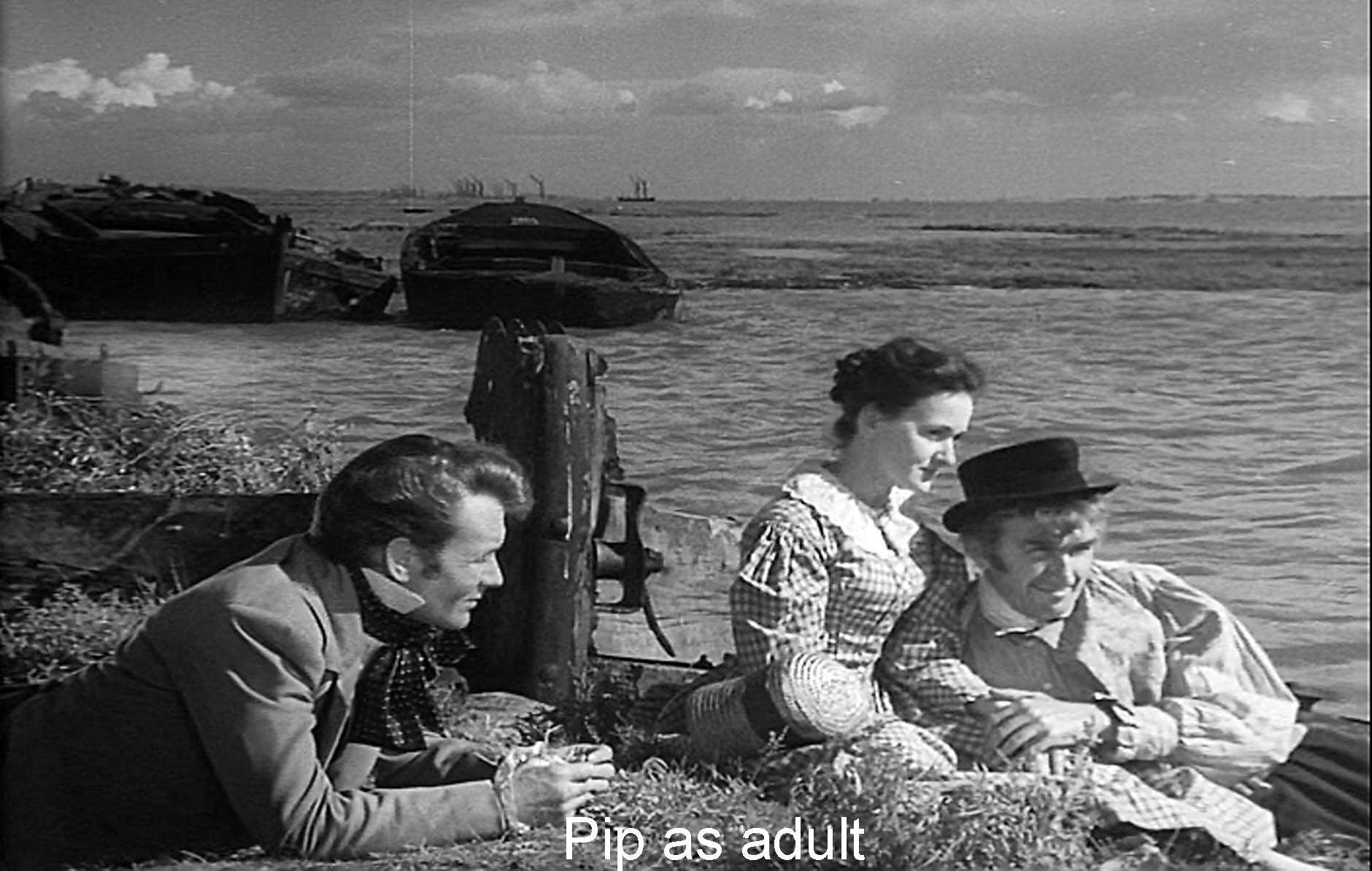As ever, we can find in the opening and closing shots a lot of what the film is about. In the very first shot, Lean shows us a copy of Great Expectations being opened, and that is surely one motif in his film: creating openings. The picture has doors and gates galore, culminating in the final shot of Pip (John Mills) and Estella (Valerie Hobson) closing the gate to Satis House as they leave, an opening to a world free of either Magwitch (Finlay Currie) or Miss Havisham (Martita Hunt). (By the way, if you would like a plot summary of the film, Wikipedia offers a very detailed one. And of the novel.)
Throughout, doors and gates signal that some new possibility has opened up. To list just a few: Pip’s theft about to be discovered when Mrs. Joe (Freda Jackson) opens the pantry door; the British soldier announcing the convicts’ escape; Estella opening the gate and doors of Miss Havisham’s mansion for Pip; lawyer Jaggers (Francis L. Sullivan) entering the forge with his news of “great expectations,” the door that announces “Mr. Pocket, Jnr., and Mr. Pip”; the door that opens to reveal the returned Magwitch, and on and on.
Opening up is what Great Expectations is all about, opening Pip and Estella up to “great expectations.” In the terms of the novel and movie, that means money, which we see as physical coins and ledger entries in the film. Money is what it takes to enter into Society, and that is one opening that both book and movie explore.
Another kind of opening is parenting: as parents we open our children to the world's possibilities. In both novel and film, we proceed from Pip's dead parents to the grim parenting provided by Mrs. Joe and the brotherly parenting of Joe ("What larks!") to the fairy tale parenting provided by Miss Havisham and Magwitch with their promise of riches, and finally to Pip's parenting the now helpless Magwitch and Pip's resulting maturity.
But the most important opening involves getting at Pip’s psychological insides. “I’ll have your heart and liver out,” says Magwitch. Pip’s heart, surely, is what we explore, his psychological progress from naïve nouveau riche to snob to loyal son to mature lover. As ever, the first shot clues us in. Over the first page of the book we hear Pip saying the opening lines of the novel. Then we shift into film, and Lean confronts the profound difference between novel and film. A novel can tell us in words what is going on in a character’s mind, but a film must somehow show us visually or aurally. Critic Brian McFarlane notes the three classic ways in which Lean, or any filmmaker, matches the first-person narration of a novel: Pip’s voice-over giving us his thoughts; subjective camera work (seeing everything from Pip’s point of view); and limiting the film to scenes which Pip witnesses.
Great Expectations is famous for its opening sequence, legendary among film critics. In dark and fog and wet, a boy runs past gallows and tombstones to the grave of his parents to lay a pathetic little bouquet. Among the headstones, trees ominously creak and their trunks hint at faces. He becomes more and more frightened and runs toward home, when, out of nowhere, a big, fierce-looking man grabs the boy, terrifying him—and me. The boy is running into the frame from the right, the man lurches in from the left. We see the grab from down low, from the boy’s height. We are to share his terror, and I do. This scene happens at a mere 3 minutes, 19 seconds into the film, startling us into total attention.
But, not just in that graveyard, death is everywhere in this film, Pip’s dead parents, Molly the murderess in Jaggers’ office, Mrs. Joe’s death, Magwitch’s death—more ominously there is the courtroom scene of a row of wretched people being sentenced to death and the multiple hanging outside Jaggers’ window. In handing out death sentences. Victorian England was even more liberal than Texas.
Victorian England, like Texas and America today, was a mercilessly stratified society. The cruel put-downs of the boy Pip by the young Estella (Jean Simmons) only say out loud what the society at large carried into action. We see the newly rich Pip do the same thing when he snubs poor countrified Joe, come up to London to give him a message. Money, money, money is what defined (and defines) who’s up and who’s down.
Director David Lean uses verticality to define power relations in the film. The rich and powerful look down, quite literally, on the poor and helpless. Consider Jaggers towering over Pip as he tells Pip of his good fortune. Think of Magwitch turning Pip upside down, Pip and his relatives looking down on the captured Magwitch as he descends into the police boat, Miss Havisham superintending the children's card game, Pip bidding farewell to Joe and Biddy from his perch on the stagecoach, Pip climbing the stairs to his lodging with Herbert, the odious Bentley Drummle speaking contemptuously to Pip from horseback, and on and on. Parents, being taller than their children, contribute to this verticality, Mrs. Joe thwacking Pip from above him, for example. But in the final scene with Joe and Biddy, all three are lying on the ground at the same level. In the last sot, Pip and Estella leave Satis House side by side.
Lean does a curious thing when Pip goes up to London to become a gentleman. He gives us as an inset shot, a map showing us his travel from the forge in the marshes of the rural West to big, bustling London. Why? I think Lean is declaring the importance of travel and journeys. They are agents of transformation in this film. They mark a way of breaking through social barriers—or not breaking through them. Pip travels to London and becomes a gentleman and a snob. Estella travels to France to become a cold-hearted lady. Magwitch goes to Australia and back, in the process becoming a rich man. Conversely, Miss Havisham goes nowhere, and she is socially dead. Joe Gargery travels to London, but retreats right away to his rural home, his status unchanged. Magwitch fails to escape to the continent and dies. Pip nearly dies in that escapade, but he goes back to the marshes, where he recovers his “real” parents, Joe and Biddy and his original, good self, the self that helped the convict and pitied him in that startling opening.
Breaking through class barriers in this film is partly real, partly a fairy tale. As countless essays for college English classes have shown, Dickens’ novel abounds in fairy tale elements. But which tale? Is Miss Havisham the fairy godmother who brings Estella and Pip from rags to riches? Or the Wicked Witch who confines Rapunzel? Or is she the Wicked Witch of Hansel and Gretel with evil plans that will consume them? Is Magwitch the troll who comes out of the water to demand a toll from you? Or is he the ogre waiting to devour you in the graveyard? “Your heart and liver will be tore out and roasted and et.” One scholar, John R. Reed (in his book Victorian Conventions, p. 31) has claimed, “Great Expectations is also a Christian tale, opening on Christmas eve, partly located in a manger-like forge, and progressing to a symbolic crucifixion (Pip’s wounded hands, symbolic illness, and resurrection).”
David Lean has kept the feel of fairy tale without trying to tie the reference down to some particular story. He gives us such things as Miss Havisham’s enchanted sitting-room, Magwitch’s appearance from the water and his death by water, or the ominous shadows in Joe Gargery’s forge. All this plays off against the prosaic realism of Jaggers’ law office, the London coach, streets, and waterfront, or Mrs. Joe’s dinner for her and Pip’s appalling relatives with their antipathy to children, especially boys, and especially Pip.
Partly, we can read Great Expectations, both the novel and the film, as a search for real parenting (as opposed to the painful talk around Mrs. Joe’s dinner table or the fabulous worlds Miss Havisham and Magwitch open up). The false, fairy tale parenting of both Miss Havisham and Magwitch proves disastrous. “We are not free to follow our own devices, you and I,” says Estella. Pip nearly dies trying to save Magwitch, and he loses the money that was to secure him an opening into Society. In the end, having chosen a horrible relationship with Drummle, Estella was about to re-live the grotesque seclusion of Miss Havisham. But Pip recovers under real parenting, kindly Joe and Biddy (who has replaced the horrid Mrs. Joe). He finds Estella at Satis House, and they open the gate and lead each other into the sunlight.
That final shot contrasts with the darkness of the graveyard of the opening and the gloom of Miss Havisham’s chamber, darkness throughout being associated with the false parents and now, light with freedom and Pip’s and Estella’s emerging (on the first of May! Easter?) into new life.
Perhaps Lean’s film is so successful, because Great Expectations was the perfect novel for him. Again and again in his films something small becomes epic in size and importance. Think of Lawrence of Arabia or The Bridge on the River Kwai. In Brief Encounter, a prosaic train station romance that never even gets consummated becomes a huge and shattering experience. Here, Pip—which means a small seed—is handed “great expectations” and grows and grows as a result. Finally, though, like Lawrence of Arabia or Colonel Nicholson, he is brought down to size and filmic realism and the long British tradition of respect for ordinary decency. What is not brought down to prosaic size is Lean’s achievement. Surely his Great Expectations is one of the great transformations of written literature into film.
